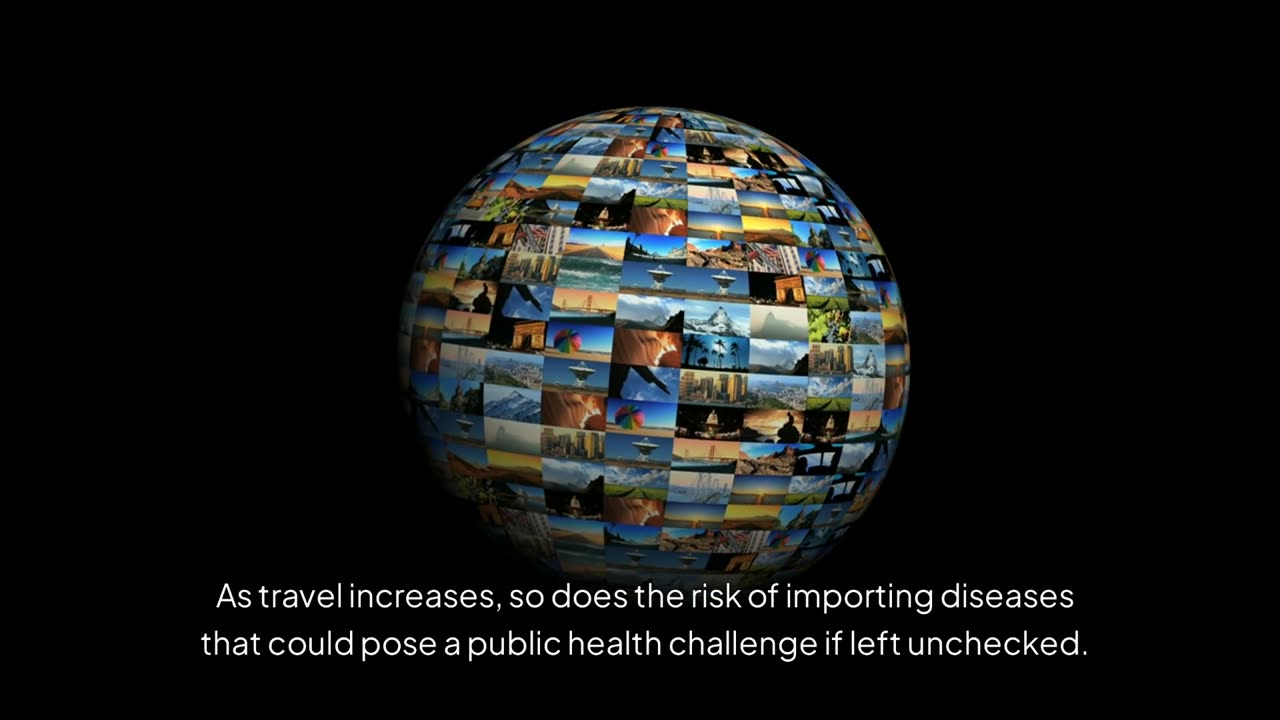Premium Only Content

Mpox Emerges: What You Need to Know About the Latest Global Health Concern*
### **Introduction: A Familiar Virus Takes a New Turn**
A rare virus has once again crossed borders, raising questions and concerns about global health. Mpox, a disease related to smallpox, is making headlines after U.S. health officials reported the first case of a new form of the virus in a traveler returning from eastern Africa. While the public risk remains low, the emergence of this strain — first identified in the Congo — highlights the unpredictable nature of infectious diseases. What makes this new form of mpox different, and what steps are being taken to contain its spread?
---
### **1. Mpox 101: What Is This Virus?**
Mpox, caused by a virus in the same family as smallpox, was once an obscure illness confined mostly to certain parts of Africa. Historically, the virus spread to humans through bites or direct contact with infected rodents or small animals. Symptoms vary widely, from mild fever and body aches to severe lesions on the face, hands, chest, and genitals.
While mpox has similarities to smallpox, it is typically less severe. Its discovery dates back to the 1950s, but in recent years, it has captured global attention due to outbreaks that leap beyond endemic regions. The virus gained prominence during the 2022 outbreak, which saw rapid transmission in new populations.
This latest version of mpox, however, presents a twist: its primary mode of transmission is through close human contact, including sexual contact, making it a different threat than earlier versions.
---
### **2. A New Form Emerges: What We Know So Far**
The first case of this new mpox form in the U.S. is linked to a traveler who recently visited eastern Africa. After returning to California, the individual sought treatment for improving symptoms and was placed in isolation. Health officials emphasize that the risk to the public is low, but they are working diligently to trace and notify close contacts.
What sets this strain apart is its high transmissibility through close interactions. Since September, over 3,100 confirmed cases have been reported, primarily in Burundi, Uganda, and the Democratic Republic of the Congo. Cases have also been identified in travelers returning to countries including Germany, Sweden, and India.
This new mpox strain raises critical questions: Why is it spreading now? Could it gain a stronger foothold in non-endemic regions? And most importantly, how can we stop it?
---
### **3. Global Spread and the Challenge of Containment**
The new form of mpox has been detected in over ten countries across four continents, underscoring the interconnectedness of today’s world. International travel allows viruses like this to leap across borders with alarming speed.
Unlike the 2022 outbreak, which predominantly affected gay and bisexual men, this strain is spreading more broadly, affecting children, pregnant women, and other vulnerable groups. Sexual transmission remains a significant driver, but close physical contact of any kind can facilitate the virus’s spread.
Containing mpox requires a multi-pronged strategy. African nations, where the virus is most prevalent, need access to millions of vaccine doses to curb its spread. Yet, logistical challenges, limited healthcare infrastructure, and vaccine inequity make this task daunting.
In countries where cases have been linked to travelers, quick isolation, contact tracing, and public awareness campaigns have been crucial in preventing further outbreaks.
---
### **4. Vaccine Inequity: A Familiar Problem**
The global response to mpox once again highlights the disparity in vaccine access between developed and developing nations. The African CDC has estimated that the Democratic Republic of the Congo alone requires 3 million doses of the mpox vaccine, while the rest of Africa needs an additional 7 million.
Unfortunately, many African countries face delays in vaccine procurement and distribution. Without adequate protection, vulnerable populations are left exposed, allowing the virus to continue spreading and mutating.
For wealthier nations, providing vaccine support isn’t just an act of goodwill — it’s a strategic necessity. In a globally connected world, no country is truly isolated from infectious disease threats. Investing in vaccine equity ensures a safer future for everyone.
---
### **5. Lessons from the Past: How Mpox Differs from COVID-19**
As news of the new mpox strain spreads, some may wonder: Could this be the next pandemic? Experts agree that mpox, while concerning, is unlikely to reach the scale of COVID-19.
Unlike COVID-19, which spreads rapidly through respiratory droplets, mpox requires close physical contact for transmission. This limits its ability to cause widespread outbreaks, especially in regions with robust public health systems.
Additionally, treatments and preventive measures are already available. Vaccines originally developed for smallpox are effective against mpox, and antiviral medications can mitigate severe cases. However, the novelty of this strain means public health officials must remain vigilant.
The key takeaway? While mpox may not lead to global lockdowns, it’s a reminder of how quickly new threats can emerge — and the importance of preparedness in an unpredictable world.
---
### **6. How You Can Stay Safe**
Although the risk to the general public is low, awareness is essential. Here are some simple steps to protect yourself:
- **Understand the symptoms:** Mpox can start with fever, chills, and body aches, but severe cases involve lesions. Seek medical advice if you experience these symptoms after close contact with an infected person or travel to an affected region.
- **Practice good hygiene:** Frequent handwashing and avoiding contact with sick individuals can reduce your risk.
- **Stay informed:** Keep up with updates from trusted health organizations like the CDC and WHO.
- **Support global efforts:** Advocate for equitable vaccine distribution and funding for disease prevention programs.
For travelers, especially those visiting regions with active outbreaks, staying informed about local health conditions and taking precautions can prevent infection.
---
### **Conclusion: A Shared Responsibility in a Connected World**
The emergence of a new form of mpox is a stark reminder of the delicate balance between human activity and infectious disease. While the risk to the public remains low, the virus’s ability to spread through close contact and international travel makes it a global concern.
As we’ve learned from past outbreaks, collaboration is key. Governments, healthcare providers, and individuals must work together to contain mpox and prevent future health crises. By staying informed and advocating for equitable solutions, we can help protect ourselves and the most vulnerable among us.
Did you find this article insightful? Let us know your thoughts in the comments! Don’t forget to **like, share, and subscribe** to our channel for more updates on global health issues and what they mean for you. Together, we can build a healthier and more informed world.
-
 1:58:40
1:58:40
Robert Gouveia
6 hours agoJ6 Coverup: Prosecute LIZ CHENEY; NY Judge REJECTS Immunity; Trump Breaks Gag?
74.8K59 -
 2:22:06
2:22:06
WeAreChange
5 hours agoPSYOP Spreads: Drones Shut Down Airport In New York!
54K34 -
 1:31:18
1:31:18
Redacted News
7 hours agoEMERGENCY! NATO AND CIA ASSASSINATE TOP RUSSIAN GENERAL, PUTIN VOWS IMMEDIATE RETALIATION | Redacted
197K325 -
 56:45
56:45
VSiNLive
6 hours ago $5.02 earnedFollow the Money with Mitch Moss & Pauly Howard | Hour 1
59.2K2 -
 52:44
52:44
Candace Show Podcast
6 hours agoMy Conversation with Only Fans Model Lilly Phillips | Candace Ep 122
73.9K255 -
 LIVE
LIVE
tacetmort3m
7 hours ago🔴 LIVE - RELIC HUNTING CONTINUES - INDIANA JONES AND THE GREAT CIRCLE - PART 5
208 watching -
 26:52
26:52
Silver Dragons
5 hours agoCoin Appraisal GONE WRONG - Can I Finally Fool the Coin Experts?
27.7K2 -
 UPCOMING
UPCOMING
Bare Knuckle Fighting Championship
11 hours agoBKFC on DAZN HOLLYWOOD WARREN vs RICHMAN WEIGH IN
19.3K -
 6:49:16
6:49:16
StoneMountain64
9 hours agoNew PISTOL meta is here?
31.2K1 -
 20:58
20:58
Goose Pimples
11 hours ago7 Ghost Videos SO SCARY You’ll Want a Priest on Speed Dial
17.8K3